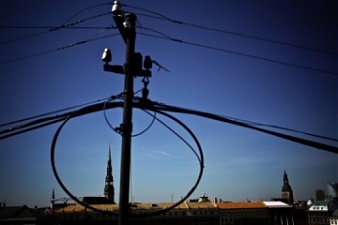Direct Speech, Education and Science, Energy, Latvia, Legislation
International Internet Magazine. Baltic States news & analytics
Tuesday, 16.04.2024, 20:11
Riga’s stakeholder identification and prioritization in the planning process of sustainable energy development
 Print version
Print version |
|---|
By bringing multiple stakeholders
and projects together it is possible to create integrated solutions that have
the scope to speed delivery, enable new projects, improve economic viability,
increase availability of public and private investment, maximize positive
impacts and reduce deployment risks. The long-term success of any sustainable
city strategy is likely to depend critically on the support and input of key
stakeholder organizations. This sub-task assists cities in identifying the
various stakeholders that they need to engage with to deliver ambitious
sustainable city plans, including businesses, citizens, public companies and
political decision makers. These stakeholders need to be engaged throughout the
process: in vision building, the analysis of actions, planning for
implementation, the development of innovative projects, up to the actual
deployment of the enhanced SEAPs.
The long-term success of any
sustainable city strategy is likely to depend critically on the support and
input of key stakeholder organizations. This sub-task assists cities in
identifying the various stakeholders that they need to engage with to deliver
ambitious sustainable city plans, including businesses, citizens, public
companies and political decision makers. The objective of this study is
development of sustainable energy action plans that are actively supported by
key stakeholders and that are aligned with their objectives.
The object of study is the city of
Riga – the capital of the Republic of Latvia. Key stakeholder groups that have
been identified include academia, local and regional administrations, industry
and commerce, finance, energy suppliers and citizens. The researchers proceeded
from the fact that are working to engage all relevant stakeholder groups to
help them move towards smart cities status including Information and
Communication Technology (ICT) partners, communication companies, innovation
bodies and international companies – in the process of developing their enhanced
SEAPs. As a result, Riga are making connections between energy, transport and
ICT and their role in CO2 emissions reduction, and recognizing that this can be
brought about through cross-sectoral actions and best practice projects in
conjunction with relevant local stakeholders, international companies and banks
all working together to roll out innovative sustainable energy solutions at
scale. During the study it was necessary to:
• identify potential stakeholders
and conduct analysis to identify stakeholders for engagement;
• organize stakeholder interviews;
• review stakeholder prioritization;
• agree on a stakeholder engagement
plan; and
• proceed with the implementation of
the engagement plan throughout the project and ongoing implementation of enhanced
SEAPs and beyond.
Riga had already developed formal,
legally binding relationships with a number of the most important stakeholders.
City has identified internal, external and international stakeholders and the
variety of sectors covered provides a good opportunity for a successful
development and implementation for enhanced SEAPs. Identified stakeholders
cover city departments, organizations, groups and businesses that are affected
by the SEAP, as well as those whose activities can affect the city’s SEAP, who
possess or control information, resources and relevant expertise for the SEAP
and whose participation is needed for the implementation of the SEAP. During
the implementation and monitoring of the current SEAP, Riga’s initial long list
of stakeholders has been growing due to regular contact with local and
international businesses, banks, universities, national administration
representatives and neighboring municipalities, as well as professionals and
citizens and their organizations. Regular communication tools such as an
actively used website (with an average of 1,200 unique users a month), Riga
Energy Agency’s Facebook profile and Twitter account, monthly discussion
groups, quarterly newsletters and regular events such as „energy days” have created
a network of more than 300 representatives of various local, national and
international groups that are influencing the process of SEAP development.
Stakeholders were prioritized by plotting them on a matrix according to their
power, influence and interest. Following this, the potential role of each
stakeholder in the SEAP process, from development to reporting and ongoing
revision, was assessed.








 «The Baltic Course» Is Sold and Stays in Business!
«The Baltic Course» Is Sold and Stays in Business!

